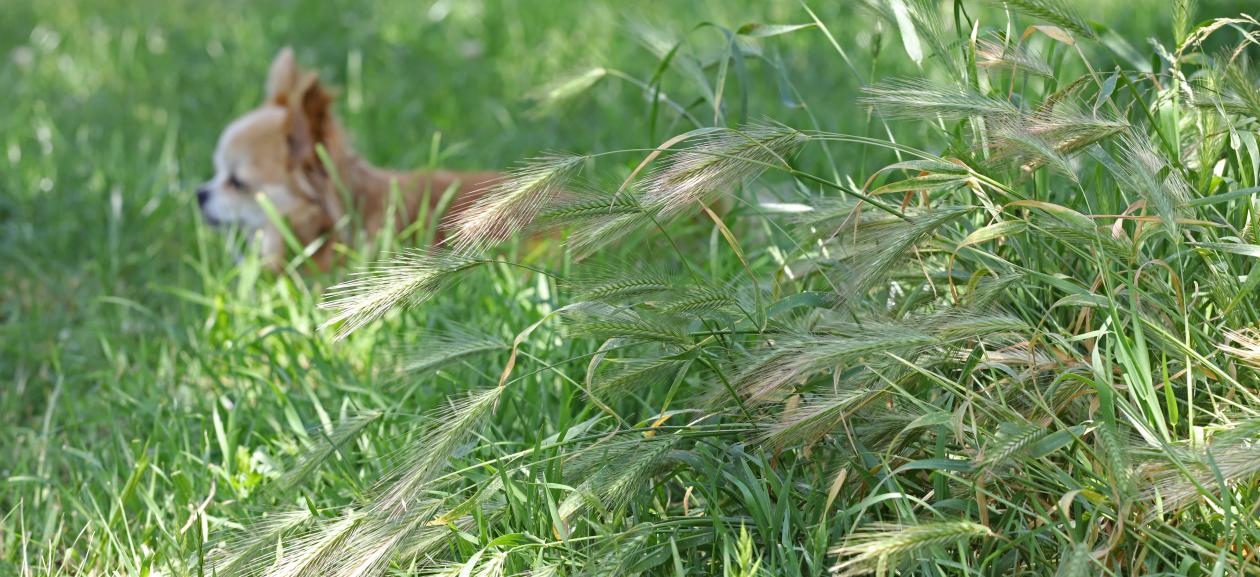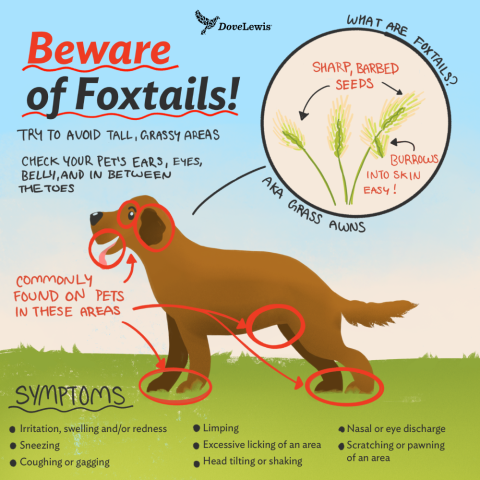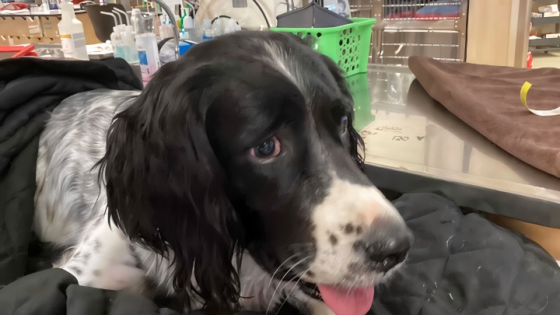
Summer Pet Safety: Beware of Foxtails!
Are you ready for a game of "avoid the foxtails"? If you're a pet owner, you should be! Foxtails, which are prominent in the late spring and summer months, are a pesky type of grass that can cause serious harm to your pets.
What are Foxtails?
Foxtails, or grass awns, are notorious for their sharp, barbed seeds that can latch on and work their way into any part of your pet. The most common areas we see foxtails on pets are on their paws, mouths, ears, eyes, and genital area.
The danger of foxtails goes beyond simple irritation. Foxtails don't break down inside the body. Instead, they migrate further into your pet leading to infections, abscesses, and respiratory problems if inhaled. We've even seen them make their way into the brain or lungs. Meet Kensley, a patient who had grass awns in her lungs.
How to Protect Your Pets
- Keep your yard and surrounding areas clear of foxtails.
- Avoid areas where foxtails are common like tall, grassy areas or fields.
- Regularly check your pet's fur, skin, and paws (even between the toes!) for any signs of foxtails. Remove them immediately. If they're starting to embed into their skin, call your veterinarian or a veterinary hospital for help.
- Keep your pet's fur trimmed during the summer months when foxtails are at their peak.
- Pay attention to your pet's behavior and take them to the vet if they're showing any signs of discomfort.
Signs of Foxtails
- Redness, irritation and/or swelling
- Limping
- Coughing or gagging
- Sneezing
- Head tilting or shaking
- Scratching or pawing of an area
- Nasal or eye discharge
- Excessive licking of an area
So, the next time you're out and about with your furry friend, keep an eye out for those sneaky foxtails to keep your pet safe and healthy!
Recent Posts
Halloween Pet Safety Tips
Fright night might be fun for humans, but it can be frightfully scary—and even dangerous—for pets. Veterinarians at DoveLewis want to remind pet owners to be mindful of the various ways Halloween can pose a threat to animals.
Fall Into Safety: Autumn Tips for Happy, Healthy Pets
As temperatures change and nature transforms, it's important to ensure the safety and comfort of your four-legged companions. Check out our list of autumn pet safety tips to keep tails wagging and whiskers twitching during the changing season.





